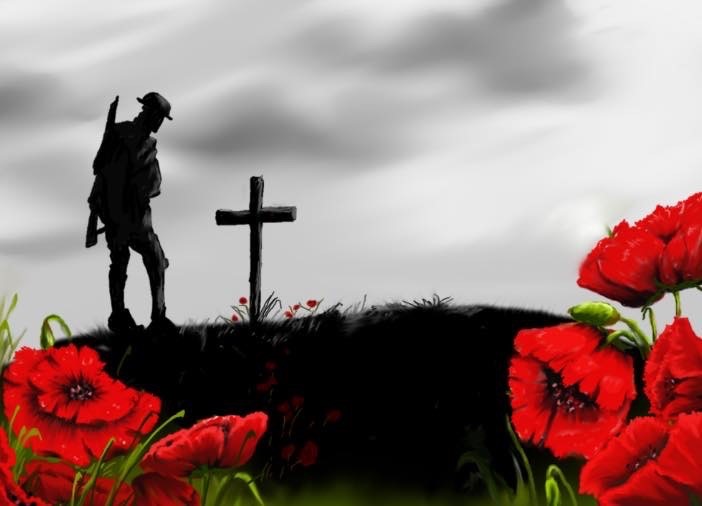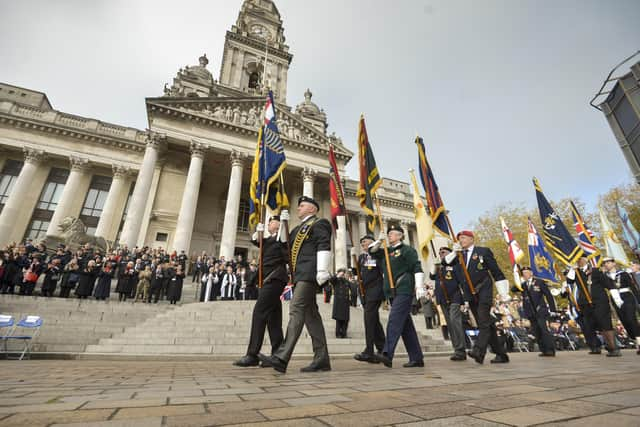
Remembrance Sunday is a solemn and significant day observed annually across the United Kingdom and Commonwealth countries to honor the brave men and women who have served in the military. Falling on the second Sunday in November, this day allows communities to reflect on the sacrifices made by service members in both world wars and other conflicts. In this blog, we’ll explore the meaning, history, traditions, and ways to honor Remembrance Sunday in a way that truly reflects its importance.
What is Remembrance Sunday?
Remembrance Sunday is held each year to remember those who have given their lives in service of their country. This event is closely associated with Armistice Day, which commemorates the end of World War I on November 11, 1918. However, Remembrance Sunday provides an opportunity to honor all those who served and died in wars and conflicts since then, not just during the First World War.

The day is marked by ceremonies, moments of silence, and the laying of wreaths. Events take place in towns, villages, and cities throughout the UK, with the main observance happening at the Cenotaph in London.
The History of Remembrance Sunday
The origins of Remembrance Sunday date back to the aftermath of World War I, a conflict that claimed millions of lives and left lasting scars on societies worldwide. Here is a brief history of how this day became an integral part of British culture:
1. Armistice Day: Following the signing of the armistice on November 11, 1918, Armistice Day was established to remember those who had fallen during World War I.
2. Transition to Remembrance Sunday: With the onset of World War II and subsequent conflicts, the UK government designated the second Sunday in November as a day to honor all fallen soldiers, regardless of the war they served in.
3. The Cenotaph Ceremony: Since 1921, a national remembrance service has been held at the Cenotaph in Whitehall, London, which remains the focal point for Remembrance Sunday ceremonies.
Why Poppies? The Symbolism Behind the Red Flower
The red poppy is one of the most iconic symbols of Remembrance Sunday. But why is it so significant?
The poppy became a symbol of remembrance due to the famous World War I poem, In Flanders Fields by Lieutenant Colonel John McCrae. The poem reflects on the fields in Belgium where poppies grew amidst the graves of soldiers who lost their lives. After the war, the Royal British Legion adopted the poppy as a symbol of remembrance and began distributing them to raise funds for veterans.
Wearing a poppy on Remembrance Sunday signifies respect and gratitude for those who served. While red poppies are most commonly worn, white poppies (symbolizing peace) and purple poppies (in remembrance of animals lost in war) are also seen.
Key Traditions and Observances on Remembrance Sunday
1. The Two-Minute Silence
At 11:00 a.m. on Remembrance Sunday, a two-minute silence is observed nationwide. This moment of reflection allows people to honor the memory of those who gave their lives. The silence also occurs on Armistice Day (November 11) at the same time.
2. The Remembrance Service and Wreath-Laying
The national Remembrance Sunday ceremony is held at the Cenotaph in Whitehall, London. Senior members of the Royal Family, political leaders, and representatives from the Armed Forces participate in a wreath-laying ceremony. This tradition is mirrored in communities across the UK, with wreaths laid at local memorials.
3. The Last Post
The bugle call known as the Last Post is played during many Remembrance Sunday services. This haunting tune, traditionally sounded at the end of a soldier’s day, serves as a final farewell to the fallen.
4. Remembrance Parades
Many towns and cities hold parades featuring veterans, cadet forces, and other local organizations. These parades allow communities to come together and show respect for their servicemen and women.
How to Observe Remembrance Sunday
1. Wear a Poppy: Wearing a red poppy is a simple way to show your respect. Poppies are usually available through the Royal British Legion in the weeks leading up to Remembrance Sunday.
2. Observe the Silence: At 11:00 a.m., take a moment to reflect on the sacrifices made by so many. Whether you’re at home, work, or at a remembrance service, the two-minute silence is a poignant way to show respect.
3. Attend a Local Ceremony: Many towns and villages hold ceremonies or services. Attending one is a great way to show support for your community and its veterans.
4. Donate to Veterans’ Charities: Organizations like the Royal British Legion support veterans and their families year-round. A donation, no matter how small, can help provide essential services to those in need.
5. Educate Yourself and Others: Share the stories of veterans, learn about the history of conflicts, and engage in conversations about the significance of Remembrance Sunday.
The Importance of Remembrance in Modern Times
As time passes, fewer veterans remain from World War II and other conflicts. Yet, the importance of Remembrance Sunday remains as relevant as ever. This day allows younger generations to learn about the history of conflicts, the value of peace, and the sacrifices made to protect freedom.
In a world where new conflicts continue to emerge, Remembrance Sunday serves as a reminder of the devastating impact of war. Honoring the past is also a way of advocating for a more peaceful future.






